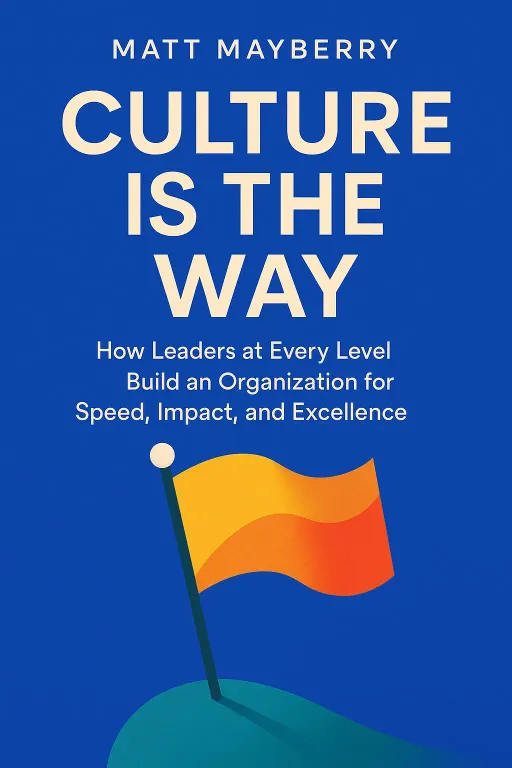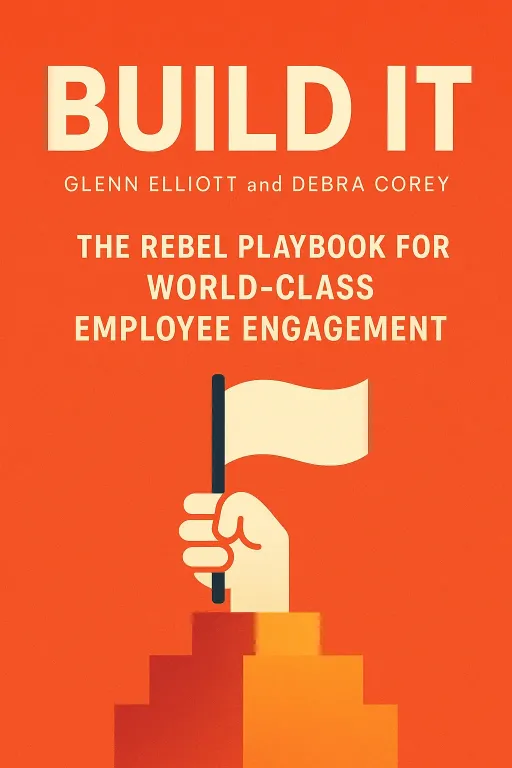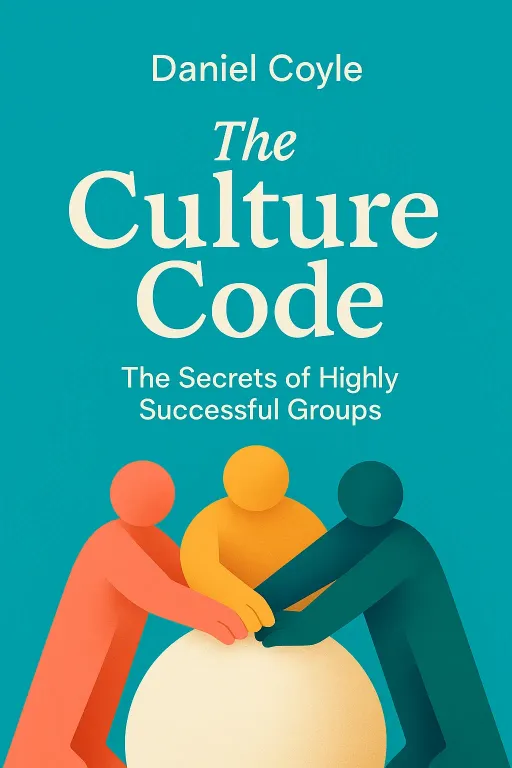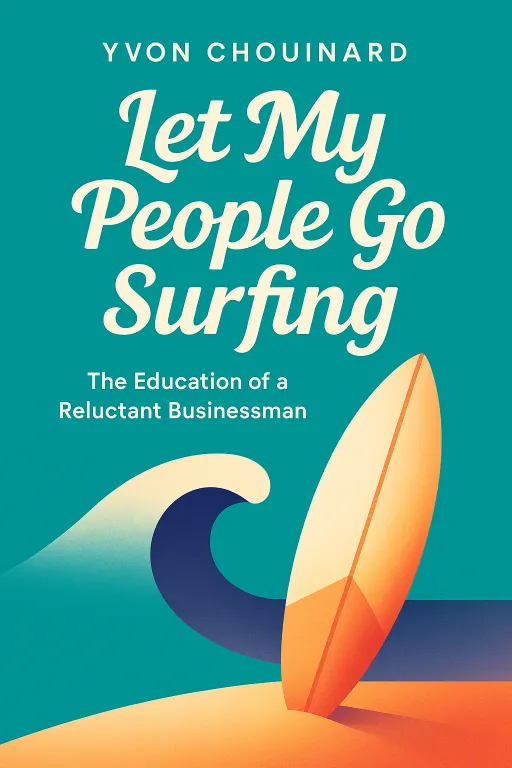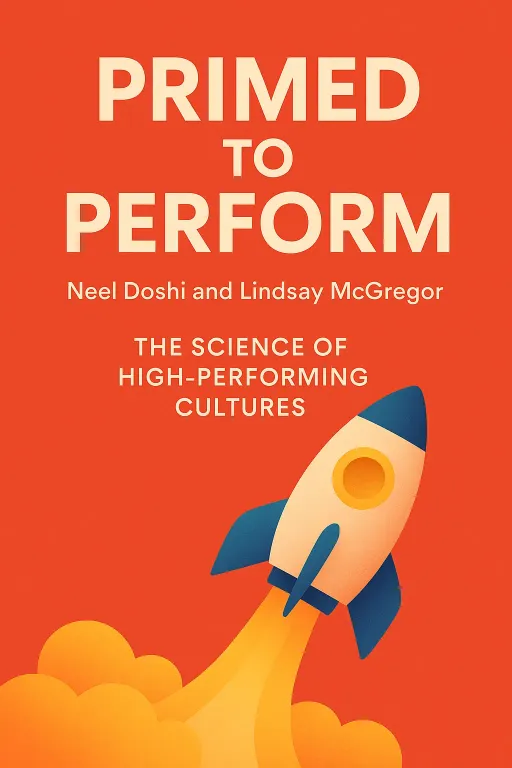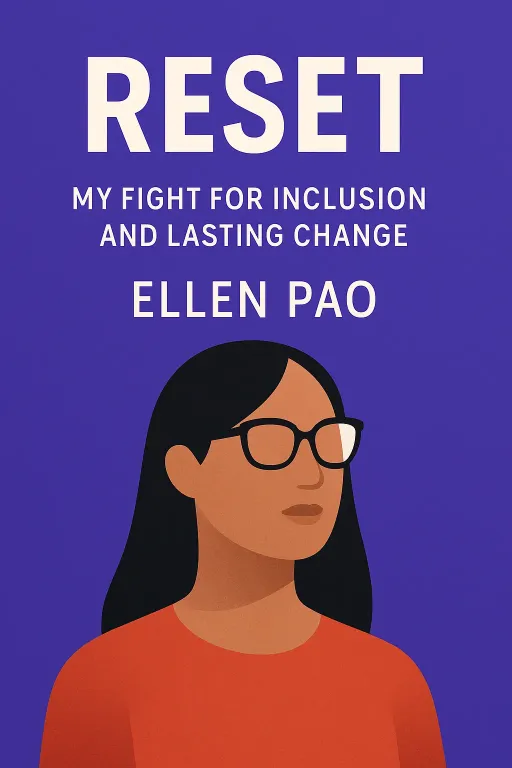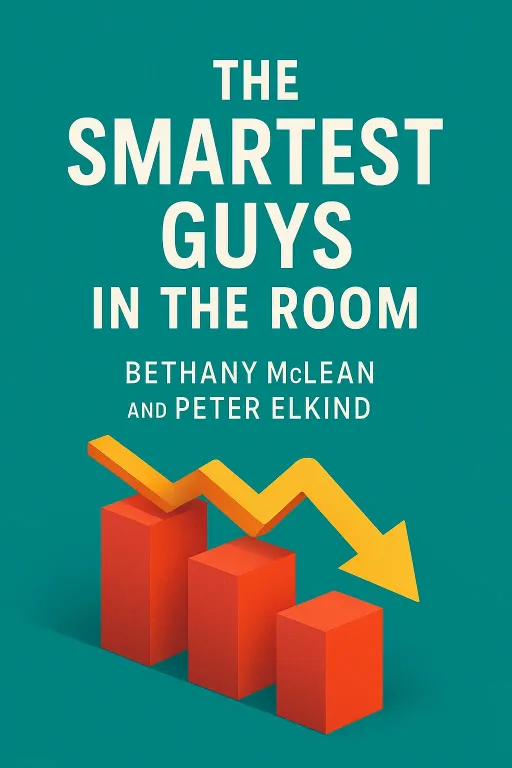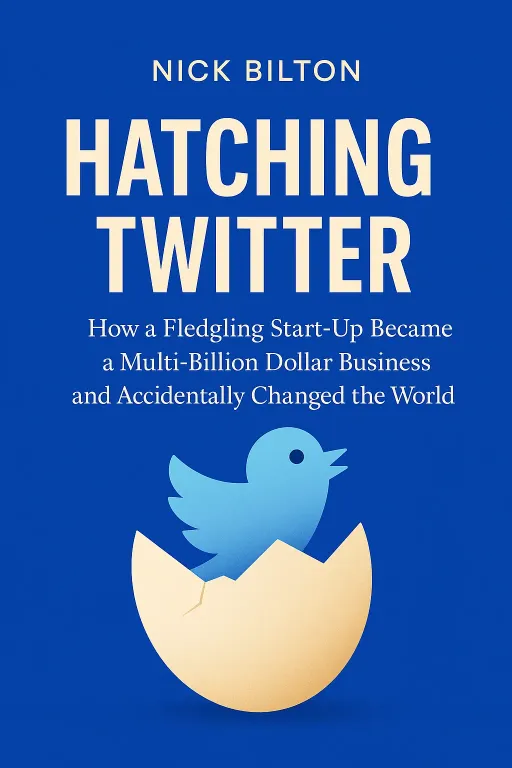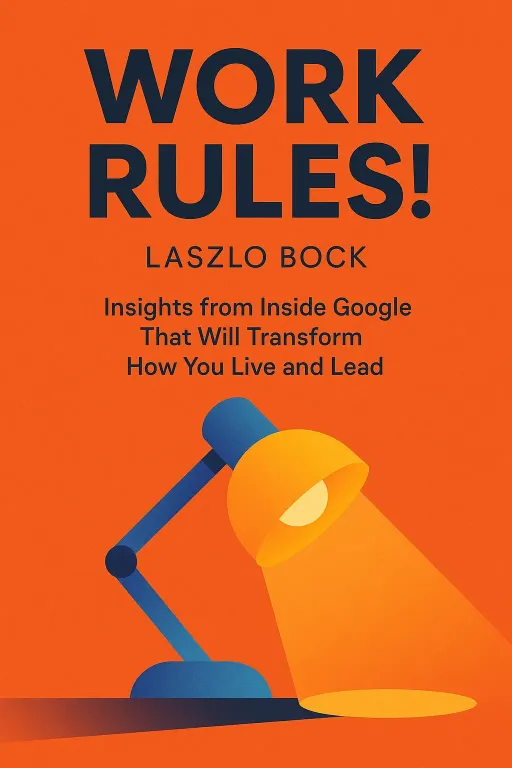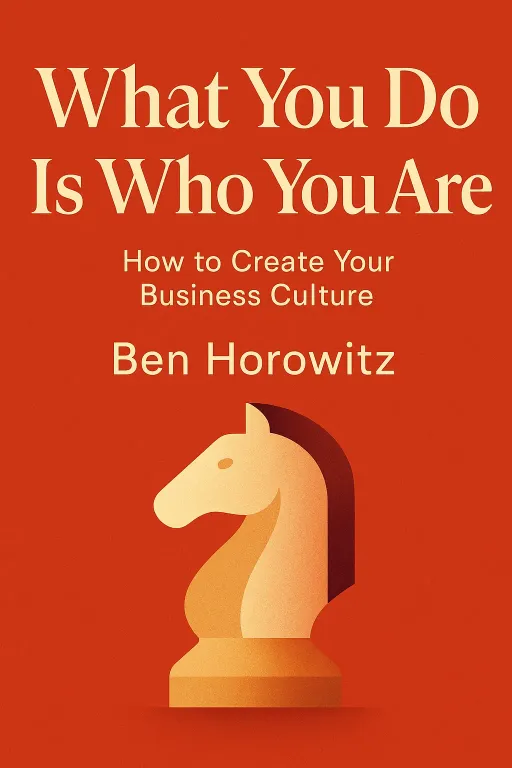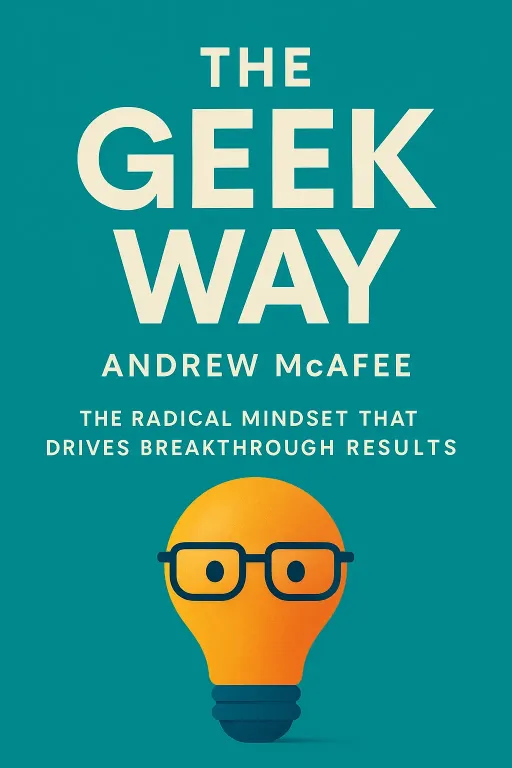
The Geek Way
14 minThe Radical Mindset That Drives Breakthrough Results
Introduction
Narrator: In 2018, two of the biggest names in their respective industries, Hollywood titan Jeffrey Katzenberg and former HP CEO Meg Whitman, launched a venture that seemed destined for success. They raised an astonishing $1.75 billion to create Quibi, a mobile-first streaming service with A-list talent and a promise to revolutionize entertainment with "quick bites" of content. Yet, in a stunning turn of events, the company collapsed in less than 200 days, burning through its massive war chest and becoming a cautionary tale in the tech and media worlds. What went so wrong? Was it just bad timing, or was there a deeper, more fundamental flaw in its design?
In his book, The Geek Way: The Radical Mindset That Drives Breakthrough Results, author Andrew McAfee argues that Quibi’s failure was not an accident. It was the predictable outcome of a company built on an outdated, industrial-era playbook, one that ignored the cultural revolution quietly reshaping the modern economy. McAfee reveals that the most innovative companies today aren't just winning because of better technology; they're winning because they operate according to a radically different set of cultural norms.
The Four Norms That Define the Future of Work
Key Insight 1
Narrator: McAfee asserts that the "geek way" is not about perks like free snacks or ping-pong tables. It is a fundamental rewiring of a company's culture around four core norms: Speed, Ownership, Science, and Openness.
The norm of Speed is about rapid iteration, not just working faster. It’s embodied by companies like Planet Labs, which challenged NASA’s slow, billion-dollar approach to space exploration. Instead of years of planning, Planet’s founders built and launched satellites using cheap, off-the-shelf components, tolerating failure in order to learn and improve at a blistering pace. They now have a thousandfold cost advantage over traditional providers.
Ownership is about dismantling bureaucracy to empower individuals. When executive Ardine Williams joined Amazon, she needed to make a simple change to a website to comply with federal regulations. Coming from the bureaucratic world of HP, she searched for the person whose permission she needed. A senior colleague gave her shocking advice: since she had the necessary legal and business context, she didn't need to ask anyone. She just needed to "push the button" herself. This is ownership in action—empowering individuals to act without getting tangled in red tape.
The norm of Science is about replacing gut feelings with evidence. At Google, this meant waging war on the "HiPPO"—the Highest-Paid Person's Opinion. When designers and executives debated which shade of blue to use for links, they didn't argue based on taste. They ran A/B tests with millions of users to see which color generated more clicks. This data-driven approach, which famously led a top designer to resign in frustration, is estimated to have increased ad revenue by $200 million annually.
Finally, Openness is about creating a culture where ideas are judged on their merit, not on the rank of the person who proposed them. At HubSpot, when the CEO presented a new idea for an in-house education program, a recent hire openly challenged aspects of the proposal. Instead of being defensive, the CEO acknowledged the validity of the criticism and adjusted his approach. This is the kind of egalitarian, argumentative culture that allows the best ideas to win.
We Are All Ultrasocial Creatures, Not Lone Geniuses
Key Insight 2
Narrator: To understand why these four norms are so powerful, McAfee argues we must first understand a fundamental truth about human nature. We are not successful as a species because of our individual intelligence. In fact, we are surprisingly helpless on our own. A thought experiment illustrates this: if a group of human children were placed in a perfect Eden with abundant food and resources, they would likely starve. They wouldn't know how to make fire, cook food, or create tools, because those skills are not innate; they are culturally transmitted.
Our species' superpower is what McAfee, borrowing from evolutionary biology, calls ultrasociality. We are uniquely skilled at cooperating in large groups and learning from one another, allowing knowledge to accumulate across generations. This collective brain is what allows us to build everything from smartphones to spaceships.
However, this deep reliance on the group makes us exquisitely sensitive to social norms. The famous Princeton Seminary experiment demonstrates this powerfully. A group of seminary students were told to prepare a talk on the parable of the Good Samaritan. On their way to deliver the talk, they passed an actor slumped in an alley, clearly in distress. The single biggest factor determining whether they stopped to help was not their personality or the fact they were thinking about altruism, but whether they were told they were running late. The social norm of punctuality overrode their deeply held moral values. This is why the geek way focuses on shaping group norms, not just appealing to individual reason.
Science Is the Antidote to Our Brain's "Press Secretary"
Key Insight 3
Narrator: Humans are notoriously bad at objective reasoning, largely because of cognitive biases like overconfidence and confirmation bias. McAfee explains this using the concept of the brain's "press secretary"—a mental module whose job isn't to find the truth, but to spin information in a way that makes us look good to others. It filters reality to protect our ego and social standing.
The disastrous launch of New Coke in 1985 is a perfect case study. Coca-Cola's CEO, Roberto Goizueta, was facing declining market share against the sweeter-tasting Pepsi. His team developed a new, sweeter formula that consistently won in blind taste tests. The data seemed clear. Driven by this evidence, Goizueta made the bold decision to replace the original Coke formula entirely. The public backlash was immediate and overwhelming. What the data-driven, overconfident "press secretary" in the executive suite failed to account for was the deep emotional and cultural attachment consumers had to the original brand.
The geek norm of Science provides the antidote. It relies on what McAfee calls the "iron rule of explanation": arguments must be settled by empirical testing. It forces ideas out into the open to be stress-tested by the group, harnessing our natural ability to critique others' arguments even when we can't see the flaws in our own. This creates a system where evidence, not ego, determines the outcome.
Ownership Is a War Against Bureaucracy's Status Games
Key Insight 4
Narrator: Bureaucracy is not just a necessary evil; it's a system fueled by the human drive for status. In many organizations, power and prestige are demonstrated by the number of people who report to you and the number of processes you control. This creates a perverse incentive to build empires and add layers of red tape.
A manager at Hewlett-Packard, Jennifer Nieva, experienced this firsthand when she needed approval to spend $200,000 on outside consultants. The process required twenty different signatures, including a dozen unknown people in a procurement department in another country. It took six weeks of constant phone calls to get the approval, nearly jeopardizing the project. This wasn't about fiscal responsibility; it was about a system designed around control and status.
The geek norm of Ownership wages war on this by taking away opportunities for status-seeking that don't align with the company's goals. Amazon famously did this by mandating small, autonomous "two-pizza teams" and rebuilding its entire software architecture to eliminate dependencies between them. By giving teams clear and independent ownership, they starved the bureaucratic beast and channeled the drive for status into building and delivering results.
Speed Isn't About Working Harder, It's About Iterating Faster
Key Insight 5
Narrator: Large, complex projects are notoriously late and over budget. McAfee points to the "90 percent syndrome," where a project seems to be on track until it hits 90% completion, at which point progress grinds to a halt as hidden problems emerge. This is often caused by "liar's clubs," where team members hide delays to avoid blame, creating a culture of false optimism.
The disastrous software development for Volkswagen's ID.3 electric car is a prime example. The project was plagued by delays that were hidden until the last minute, forcing thousands of engineers into a frantic, last-ditch effort to fix the code and ultimately costing the CEO his job.
The geek norm of Speed, inspired by the Agile Manifesto, is the solution. It’s not about velocity, but about the speed of iteration. The Marshmallow Challenge, a famous design exercise, reveals why this works. MBA students spend most of their time planning a perfect tower, only to have it collapse when they place the marshmallow on top at the last second. Kindergartners, in contrast, start with the marshmallow and build successive, wobbly prototypes. They are constantly testing and learning. Their rapid, feedback-driven approach almost always produces a better result. This is the essence of geek speed: learn by doing, in fast, observable cycles.
Openness Creates Common Knowledge and Kills Undiscussable Problems
Key Insight 6
Narrator: The final norm, Openness, is a powerful self-correction mechanism. Its absence can be fatal, as seen in the fall of the accounting firm Arthur Andersen. Once a bastion of integrity, the firm's culture devolved into one where partners were afraid to challenge powerful clients like Enron for fear of losing lucrative consulting fees. The firm's deep-seated problems became an "undiscussable" topic, leading to one of the biggest corporate scandals in history.
Openness combats this by creating what logicians call "common knowledge." This is illustrated by the "Bad Breath Island" puzzle. On an island where no one can smell their own bad breath but can smell everyone else's, an alien arrives and makes a simple announcement: "At least one of you has bad breath." This statement tells no one anything they didn't already know. However, it makes the existence of the problem known to be known by everyone. This new common knowledge forces the islanders to reason differently, and within days, all those with bad breath identify themselves and leave.
In a company, openness functions like the alien's announcement. It makes problems visible and undiscussable topics impossible to ignore, forcing the organization to confront reality and self-correct.
Conclusion
Narrator: Ultimately, The Geek Way is not a promise of corporate immortality. McAfee is clear that all companies, no matter how innovative, are vulnerable to disruption and internal decay. Overconfidence, status-seeking, and bureaucracy are powerful forces of human nature that constantly threaten to reassert themselves.
The book's most important takeaway is that the geek way offers a path to sustained vitality. It is a continuous, conscious effort to build a culture that actively counteracts our worst tendencies. It requires leaders to embrace science over ego, grant true ownership, demand rapid iteration, and foster a radical degree of openness. The most challenging idea in the book is that a company's success depends less on hiring individual geniuses and more on architecting a social system that channels our flawed, ultrasocial nature toward innovation and progress. It leaves every leader with a critical question: Are you willing to fight the daily battle against human nature to build an organization that can truly thrive?
